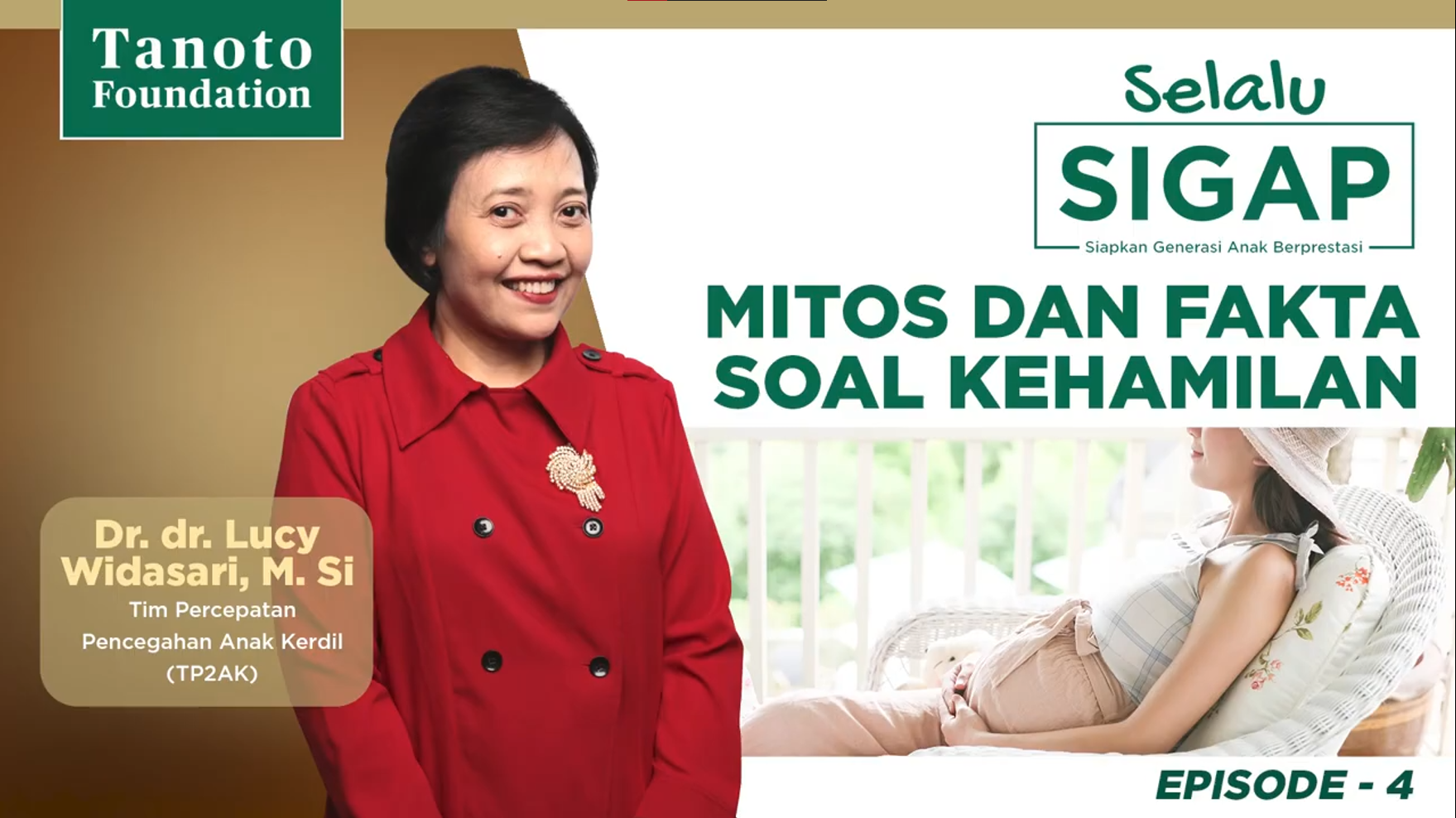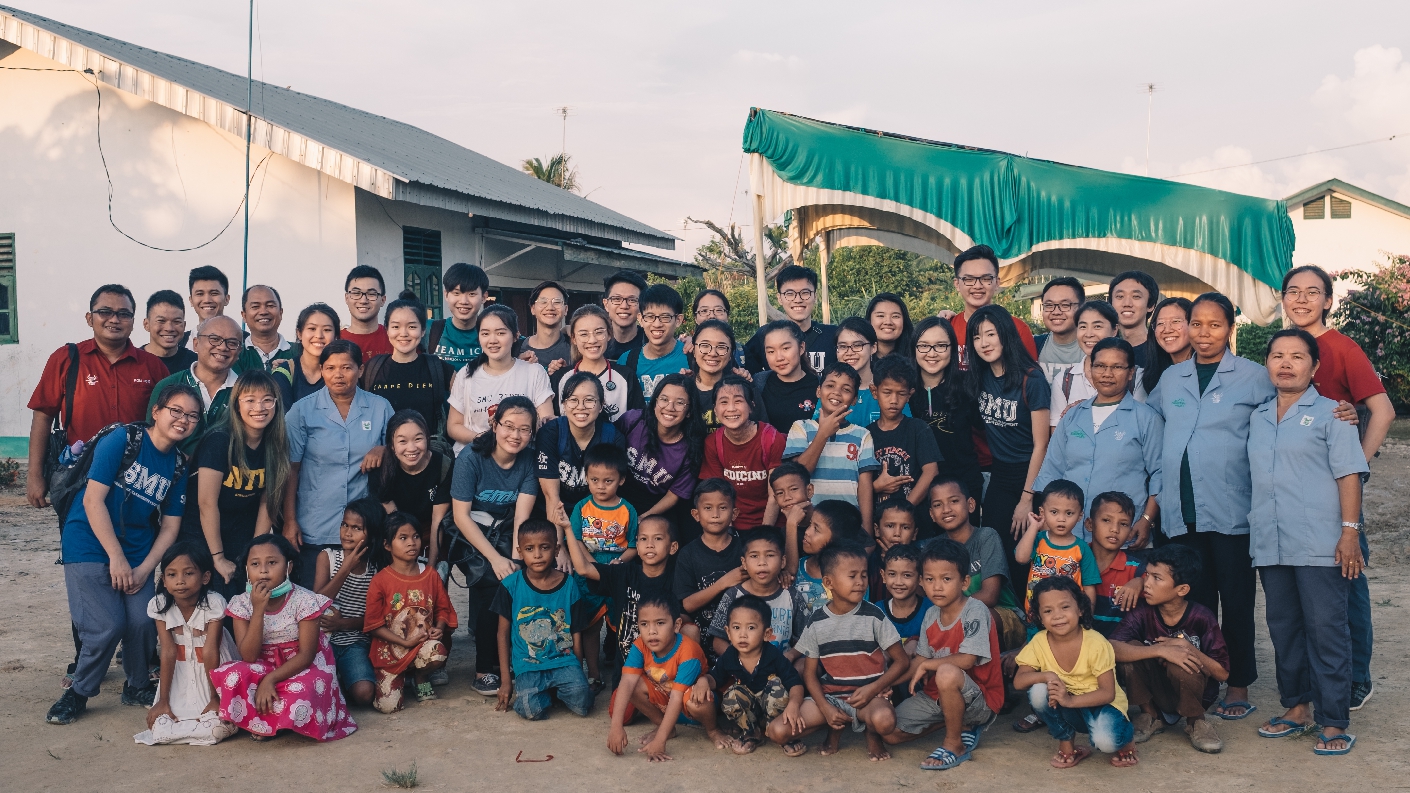Even before he or she is born, your baby can respond to external stimuli. And the research shows that not only does this help you bond with your baby, it can even help with their development.
As your baby’s brain begins to develop nerve connections, that stimulation can really help them awaken their senses.
In the fifth episode of Selalu SIGAP, our host Andrea Lee chats with dr. Ardiansjah Dara Sjahruddin, Sp.OG., M.Kes, or dr. Dara, an obstetrician-gynecologist, talks about the significance of stimulating babies in the womb and how you can do it.
This episode covers:
a. Why stimulation is important for unborn babies
b. The stages of pre-birth stimulation
c. What you need to remember
Prenatal Development
Proper nutrition rightly gets a lot of focus, but having a healthy pregnancy also requires providing stimulation to the baby in the womb.
Prenatal sensory experiences can shape a baby’s brain, and its development has long lasting effects on the baby’s abilities. These experiences can also be the start of an emotional bond between the infant and the mother that will continue for life.
In the early days of pregnancy, expectant mothers often caress or touch their stomach even though they are not showing yet.
According to dr. Dara, the gesture mostly comes naturally and the mothers can do so unconsciously. “That is considered good and it can be a form of stimulation,” he said.
He emphasized that stimulation during pregnancy must be those that generate positive moods. When an expectant mother talks to her unborn child with joy, that feeling will do wonders in minimizing childbirth risks such as postpartum depression.
“Sometimes a patient’s husband would jokingly say of the expectant mother, ‘She talks to herself, doc’. But that’s no problem at all, I even encourage her to do so. Talking to the baby would make the mother feel less stressed. And mentally, she’d be stronger from pregnancy until labor,” dr. Dara said.
Exciting the Senses
Dara said that as the baby’s brain develops, each trimester requires different stimulation.
The first trimester is where expectant mothers can begin to have an emotional attachment or relationship with their babies. Talking to them may help in feeling closer, and it is considered a great way of bonding. Reading or talking to babies also allows them to be familiar with the parents before birth and encourages cognitive development.
“During this time, expectant mothers are suggested to talk about positive things [to their babies], which can also benefit her well-being, such as ‘Be good, baby, help me to feel less nauseous’. It may sound silly for some people, but don’t worry at all,” dr. Dara explained.
In weeks 18 to 24 of pregnancy, the baby’s ears begin to be able to detect noises. “At that age, a baby can hear the sounds around it, such as the mother’s heartbeat or the blood flow,” said dr. Dara.
As the baby grows, he recommended that music therapy can be introduced from week 24 of pregnancy. Citing the popular notion that babies are stimulated by classical music in the womb, dr. Dara said that expectant mothers can listen to any type of music they favor, as classical music may not be everyone’s cup of tea.
“We don’t want the mother to feel stressed from listening to something she feels uncomfortable with. So go ahead with pop, jazz, gospel songs, anything she finds soothing. That way, she’d have good blood circulation and that’s an excellent thing for the baby,” he said.
In the third trimester, stimulation is mostly done by touching. As the belly grows bigger, parents can see the baby’s movements more clearly. They are encouraged to touch the belly and talk to the baby whenever it moves or kicks, as it can help the baby to feel relaxed and reassured.
During this time, expectant mothers are also suggested to do exercise. dr. Dara said that doing routine exercise will improve the mother’s mood and blood circulation, which in turn will benefit the baby as well.
“People often forget that sport is also a form of stimulation,” he said. “And it doesn’t necessarily have to be any sport, doing house chores is also good for pregnant women.”
The ideal sports that can provide stimulation during pregnancy are those with minimal risks such as speed walking, jogging or swimming.
Know by Heart
As we’re going through a pandemic, dr. Dara shared three key things expectant mothers need to remember in terms of giving stimulation at home.
Giving stimulation must not present any harm for you and the baby. Keep away from doing things over the top and try to minimize any risk.
Secondly, personalize any sound stimulation to the mother’s liking, be it music or reading out a story. Mothers should feel happy and relaxed when stimulating their babies.
Finally, stimulate your baby regularly. dr. Dara emphasized continuity as it directly affects the emotional bonding with your baby.
If there is any question concerning stimulation, dr. Dara said that it should always be discussed with a health practitioner.
“Nowadays, it’s very easy to receive information that might seem tempting to you, but always remember to consult with your doctor and don’t follow blindly,” he said.
Get to know more https://bit.ly/PentingnyaStimulasiBagiJanin





